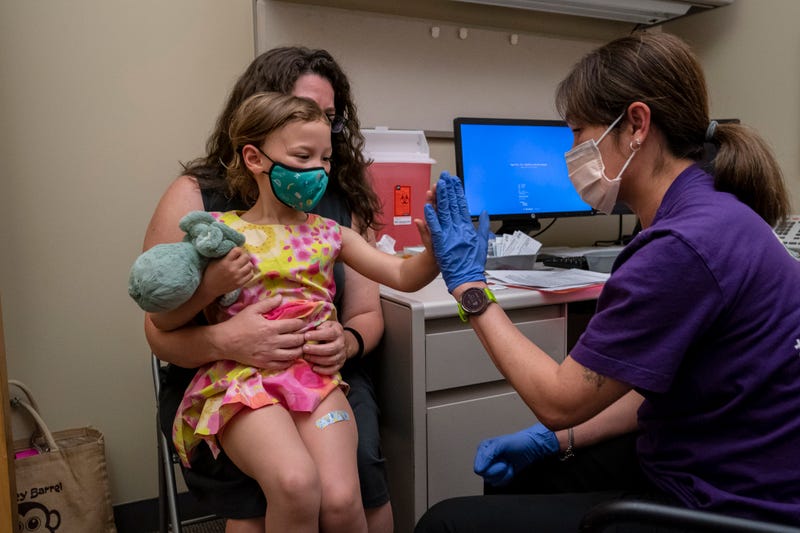
SAN FRANCISCO (KCBS RADIO) – Young Bay Area children are getting vaccinated against COVID-19 at a faster rate than anywhere else in the U.S.
For more, stream KCBS Radio now.
In a little more than three weeks since federal regulators cleared the way for the country’s tiniest arms to receive their shots, about 3.2% of California children under the age of 5 have received their first dose. A senior Biden administration official told ABC News last Thursday that 1.5% of children nationally had gotten theirs.
According to state and local data, all nine Bay Area counties have started vaccinating young children at higher rates than the rest of the country so far, and all but one (Solano, 2.9%) is ahead of the state. Three counties have given initial doses to at least 12% of newly eligible children (San Mateo, 12%; San Francisco, 15%; Marin, 16%) so far.
"The Bay Area is looking really strong," Dr. Peter Chin-Hong, Associate Dean for Regional Campuses at UCSF, told KCBS Radio in an interview.
The Bay Area has led the way on vaccinations throughout the COVID-19 pandemic. While 67% of Americans have completed their initial vaccination series, at least 68.5% of residents in every Bay Area county have finished theirs.
The rate might be picking up because of the still-ongoing surge throughout the region. All nine counties have high COVID-19 levels as defined by the U.S. Centers for Disease Control and Prevention.
"So often times, people try to address something they see in their face, and I think we've seen that data before in other parts of the country during surges," Chin-Hong said. "Vaccinations often times peak when things are going rough in the community."
Half of the young children hospitalized during the initial omicron surge earlier this year lacked "traditional risk factors by comorbid conditions" such as diabetes, according to Chin-Hong, making it difficult to predict who is at greatest risk of a severe infection.
The subsequent spread of increasingly infectious omicron strains makes vaccinating young children all the more important, according to Dr. Yvonne Maldonado.
"We know that some people may feel lulled into a sense of security, that, 'Well, most people, including children, aren't going to get very sick,' " Maldonado, a professor of global health, infectious diseases and pediatrics at Stanford University told KCBS Radio. "On the other hand, we don't know any way of knowing which individuals are going to get sick enough to be hospitalized."
DOWNLOAD the Audacy App
SIGN UP and follow KCBS Radio
Facebook | Twitter | Instagram

